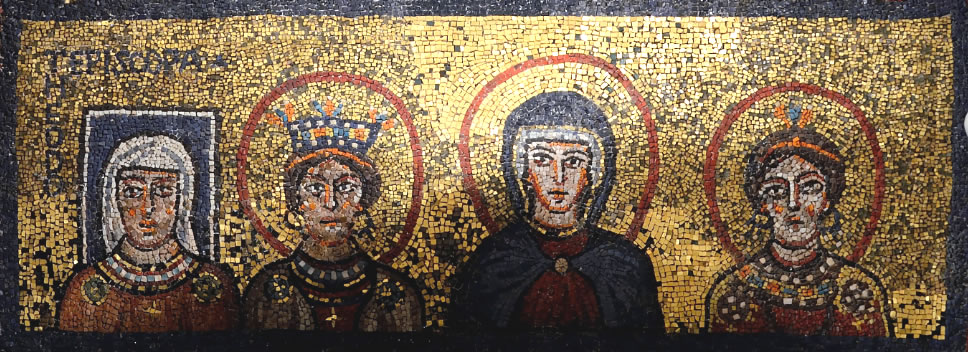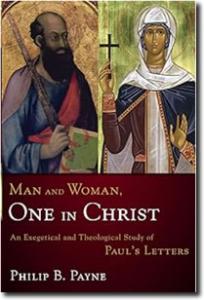The Role of Women in the Early Church – Part 3

Did Paul welcome women into his orbit?
– Women in the Book of Acts –
My first thought is to look at Luke’s account of Paul in the Book of Acts. This is a quick listing of the women (some are named, others not) shown to be in Paul’s orbit according to the book of Acts:
- a group of women in Philippi – 16:13
- Lydia, a new convert, invited Paul to stay in her home – 16:14,15
- the “church” met at Lydia’s house – 16:40
- “quite a few” leading women responded in Thessalonica – 17:4
- in Berea “prominent Greek women” believed – 17:12 [-1-]
- Damaris, a Greek woman in Athens who believed – 17:34
- “and a number of others,” in 17:34 NIV seems to point to women
- Priscilla (wife of Aquila) is introduced – 18:2
- the four daughters of Philip – 21:9
So we see in Acts that Luke presents many women in Paul’s orbit.
– The Letters of Paul –

Now we need to look at the women listed as leaders of some kind in the letters of Paul. Rather than comb through the Pauline letters on my own, I have used Philip Payne’s excellent work, Man and Woman, One in Christ. [-2-]
- Priscilla, wife of Aquila, is most often mentioned first – Acts 18 (4x);
Rom 16:3; 1 Cor 16:9; 2 Tim 4:19 [-3-]
In Romans 16 Paul greets over 20 people, 12 of which are cited with certain terms that distinguish them as leaders. Seven of the 12 are women.
- Phoebe is listed as a “deacon” – Rom 16:1
- Junia, mentioned as an apostle – Rom 16:7
There is good scholarship showing that Paul refers to Junia as an “apostle.” [-4-]
![Eldon Epp, "Junia: The First Woman Apostle" [2005]](https://wp-media.patheos.com/blogs/sites/1743/2023/11/epp-junia-200x300.jpg)
- Mary, Rom 16:6; Tryphena, Tryphosa and Persis, Rom 16:12 – all four are cited by Paul as women who “worked hard” for the gospel.
This Greek term [kopiao] is used several times by Paul describing his own labor:
1 Cor 4:12; Gal 4:11; and especially 1 Thess 5:12-13. [Payne, p.67]
This list from the other Pauline letters continues:
- Euodia and Syntyche who “contended at [Paul’s] side in the cause of the gospel,” Phil 4:1-2
- Nympha [Col 4:15] who hosted the church in her house.
This is a list of ten women in Paul’s orbit. Add the three named women in Acts along with the references to “quite a few” and “a number of others” that are not named. Like we see with Jesus, Paul had many important women in his orbit.
– Paul’s Gospel Principles –
The historical problem with Paul’s witness is found in 3-4 thorny passages that seem to be “anti-women” in their presentation. These passages have been used through Christian history to support a negative (or at least “limited”) view of women’s involvement in church leadership.
Dealing with these specific passages is beyond the scope of this series. In the next section I will offer brief explanation for these difficult Pauline passages. Philip Payne, Man and Woman deals with all of these thorny Pauline passages. Payne’s work is a good place to start. His text is 506 pages filled with excellent scholarly sources and footnotes.
All are One in Christ Jesus
Perhaps the most revolutionary principle taught by Paul (and implied by Jesus) is that “all are one in Christ.”
Although the “male and female” phrase is only found one time, it is implied in several other Pauline passages. Consider the first part of this saying: “neither Jew nor Gentile.” This, of course, is what first brought Paul into conflict with some of the other apostolic leadership – he would not bend on the Jew/Gentile stance before God. He stood his ground in the face of persecution. Gentiles should not be circumcised, nor made to follow the food laws laid out at the Jerusalem Council [Acts 15]. Paul did not think Gentiles should be required to follow the Law of Moses:
Paul’s clear statement in Galatians 3:28 lays the foundation of equality – first with religion, next with social status (slave/free), then with respect to gender (male/female).
More Examples of Equality
Here are a few other texts worth looking at:
In the thorny passage on headship Paul makes it clear that “woman is not independent of man, nor is man independent of woman.” 1 Corinthians 11:8-12
In the passage on marriage where Paul states “Wives, submit yourselves to your own husbands as you do to the Lord” [Ephesians 5:22], the preceding verse states, “Submit to one another out of reverence for Christ.”
This is one example of around 20 uses by Paul of the Greek term allelous (“one another”) in various forms: “love one another,” “forgive one another,” “honor one another.” All of these “one another” admonitions are addressed to ALL Christians, Jew and Gentile, slave and free, men and women.
To illustrate the statement above, 1 Corinthians 12:12-30 Paul urges that the body of Christ is “one” even though made up of “many parts,” v12. He uses Jew/Gentile, slave/free in v13. While Paul does NOT use “male/female” it is clear that this is implied. Allelous is also implied in this passage, yet is not found.
The Logic of Equality
Typically Christianity does not support a theology that demands women must do something different or extra to come into faith. I am sure there have been some examples of departing from this stance, but I have never heard anyone suggest that women must do something different in order to be baptized, or to attend church.
I have never heard anyone say or imply that God loves men more or differently, or that women should not be taught to read and study the scriptures (which was a first century Jewish practice). Can women be filled with the Holy Spirit? Can they share their testimony with a male or can they only share their faith with other women and children? The priesthood of believers? Is this only for men?
We assume equality with respect to salvation, baptism and participation of all other aspects of “community.” Why would we then assume that women MUST be excluded from various roles in leadership?
All are One in Christ Jesus.
NOTES:
[-1-] “That the high-status women are mentioned first probably suggests that there were more of them that converted than men.” The Acts of the Apostles: A Socio-Rhetorical Commentary, Witherington, Ben [Eerdmans 1998], p.509n171. In this footnote (continued on p.510) Witherington states, “The antifeminist tendency in D is seen here…” This “antifeminist tendency” of the Western “D” manuscript tradition (this “western” text family is considered to be one of the oldest manuscript families) has been clearly shown by several scholars and is going to come up again in this whole discussion. See Witherington, Ben, “The Anti-Feminist Tendencies of the ‘Western’ Text in Acts.” Journal of Biblical Literature, Vol. 103, No.1 (1984), pp.82–84. Also online: JSTOR, https://doi.org/10.2307/3260315. [Look up other articles on the western text][-2-] Payne, Philip, Man and Woman, One in Christ, (Zondervan 2009), pp.61-68. This is an excellent text that can be used to research many aspects of Pauline literature, especially the thorny texts that deal with women.
[-3-] It is not easy to pass by Priscilla. She is a very important player in Paul’s ministry. There will be more on Priscilla in the remainder of this series. See Payne, Man and Woman, p. 64. Also, Bauckham, Richard, Gospel Women: Studies of the Named Women in the Gospels (Eerdmans 2002), p.213.
[-4-] See Payne, pp.65-67 especially p.65n17 where he cites Eldon J. Epp’s “masterful study” Junia: The First Woman Apostle (Fortress 2005). Epp shows that for the first thousand years it was not doubted that Junia was indeed a woman (Epp, Junia, p.34). Also see Bauckham, Gospel Women, pp.165-186. On the diminishment of Prisca see, “Is There an ‘Anti-Priscan’ Tendency in the Manuscripts? Some Textual Problems with Prisca and Aquila,” Kurek-Chomycz, Dominika A., JBL Vol. 125, No. 1 (Spring, 2006), pp. 107-128. Kurek-Chomycz also points out the Western “D” MSS problems cited above.












